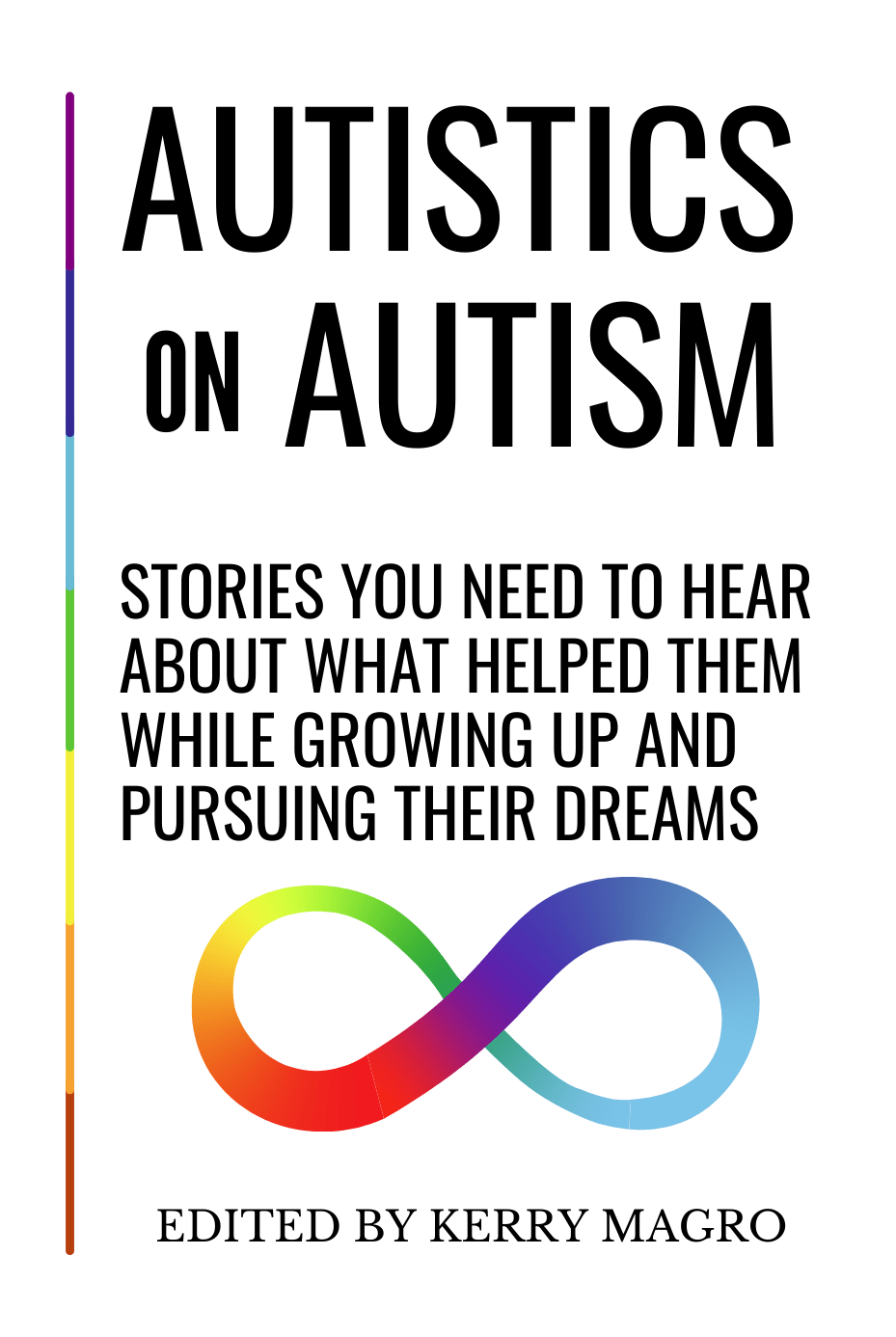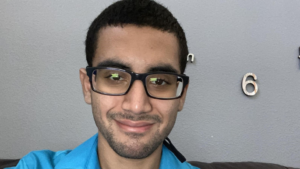This guest post is by Jillian Hahn, a young woman on the autism spectrum who was diagnosed with Asperger’s at age 8 and has been accepted into Wharton County Junior College. Jillian is applying for the Spring 2022 Making a Difference Autism Scholarship via the nonprofit KFM Making a Difference started by me, Kerry Magro. I was nonspeaking till 2.5 and diagnosed with autism at 4 and you can read more about my organization here. Autistics on Autism: Stories You Need to Hear About What Helped Them While Growing Up and Pursuing Their Dreams, our nonprofit’s new book, will be released on March 29, 2022 on Amazon here for our community to enjoy featuring the stories of 100 autistic adults.
In kindergarten, I would hide under my desk. The school’s solution was to throw a blanket over it and let me stay. For the next two and a half years, I was taken aside and- let’s face it – was not treated well. Back then, all I remember is being constantly angry and enraged. I had no outlet and no way to advocate for myself. After going to the first psychologist, I was told I had an ‘emotional disturbance’. Two more doctors later, I was diagnosed with autism, specifically Asperger’s.
With that diagnosis, I was able to transfer to another school in the district that offered a program to help me. Whenever I acted out, I would be stuck inside a room, restrained when I tried to leave and was mocked by teachers when I tried my hardest to communicate. In fourth grade, I had a grand mal seizure and was homeschooled the rest of the year due to epilepsy caused by viral encephalitis. I don’t remember much from fourth to seventh. For middle school, I went to the school that was by my elementary. For seventh, I was told I had to return to my home school. After five or six weeks the district saw that I was not succeeding and was sent back to the school I was originally supposed to go to. After three days, I was back homebound. I returned to junior high for a successful eighth-grade year. Freshman year, I went the first semester, had a seizure on the first day of the second semester, and was homebound. Sophomore year, I was homebound most of the first semester, but I still went to school. The second semester was great and happy until spring break hit, and I didn’t return because of the pandemic. The junior year comes, virtual all morning, then in-person all afternoon. That was probably the best year.
In October of 2019, I had a lot of trouble. My mother searched for some way to help me. She refused to let this go on. The more time progressed, the worse my behavior got. That’s when she found a program to help me. That next January/February, I had a meeting with someone. At first, I didn’t want any of this at all. When I got accepted, I didn’t want to talk to anyone or go to therapy. After a few visits with the art therapist, I slowly opened up.
The first time at music therapy we sat there and just talked, and I paused. I glanced at the guitars and asked, “Hey, I have a guitar at home. Could you teach me?” A week or so later, I tried tuning my guitar and it sounded just wrong. Turns out that when you have your grandfather’s sixty-year-old guitar sitting in an attic in New York for a long time, then in another closet for five or eight years, it won’t work. So, the night after the next time with the therapist, I used my own money to buy a new guitar. I’ve played enough to work up calluses. I already knew piano. I can’t read sheet music, but I can play by ear. And that works with guitar, too.
We tried a new kind of therapy. Instead of riding horses, I talked to them and pet them. I love seeing this old, old horse name Comet and he’s the cutest thing ever. And then at the other place, we rotate every week, there are these two mini ponies I like to brush. It feels so odd when there’s a situation in that I would have stomped my feet or screamed, but now I stand there, nod, and move on. Or it’s after the fact that I do something without realizing it.
And that’s stuff I was working on in therapy that I thought would never work, then months later, I pause and go, “Huh.” I used to chuckle at what they were coming up with, but my brain did it without me even realizing it until after. I haven’t felt the severe anxiety nearly as often as I would before this. I rarely scream or act out. While I would’ve acted out because I couldn’t use my words, I now stop and think to process. I’ve been so used to acting out so much, it’s hard to accept it. Instead, I… use my words? How did that ever happen? It feels so unlike me when I respond to situations like a normal person would, and not like a rabid Jersey Devil released from the wild.
A new phrase is ‘I’m done.’ I say that when I’ve had enough. With graduation coming up, I’ve had anxiety I haven’t had in a long time. I get worried about a lot of stuff. I color, listen to music or play piano or guitar when I’m frustrated. I know when to take breaks. I know how to ask for stuff I need. I can go to grocery stores like a normal person. My whole family can go out and do things together without worrying about me all the time. There hasn’t just been a relief on my end but also with my parents and sister.
Follow my journey on Facebook, my Facebook Fan Page, Tiktok, Youtube & Instagram,
My name is Kerry Magro, a professional speaker and best-selling author who is also on the autism spectrum that started the nonprofit KFM Making a Difference in 2011 to help students with autism receive scholarship aid to pursue post-secondary education. Help support me so I can continue to help students with autism go to college by making a tax-deductible donation to our nonprofit here.
Autistics on Autism: Stories You Need to Hear About What Helped Them While Growing Up and Pursuing Their Dreams, will be released on March 29, 2022 on Amazon here for our community to enjoy featuring the stories of 100 autistic adults. 100% of the proceeds from this book will go back to our nonprofit to support initiatives like our autism scholarship program. In addition, this autistic adult’s essay you just read will be featured in a future volume of this book as we plan on making this into a series of books on autistic adults.















